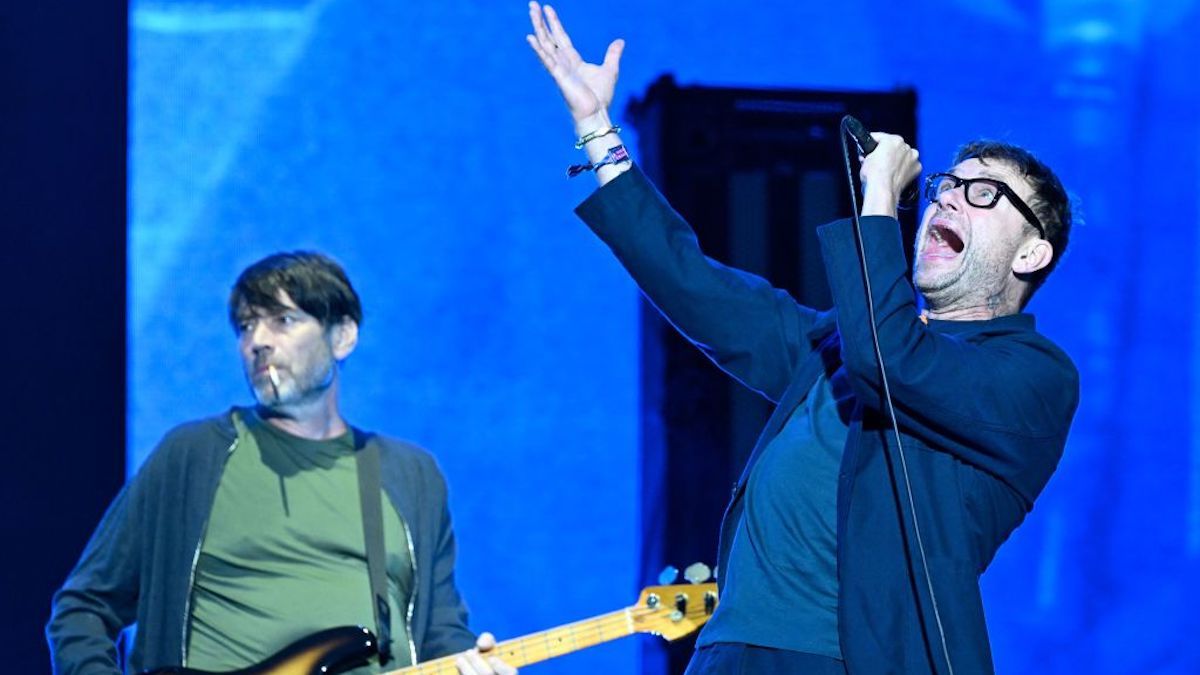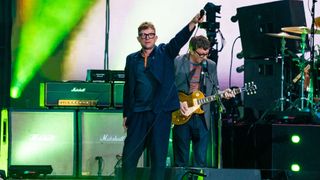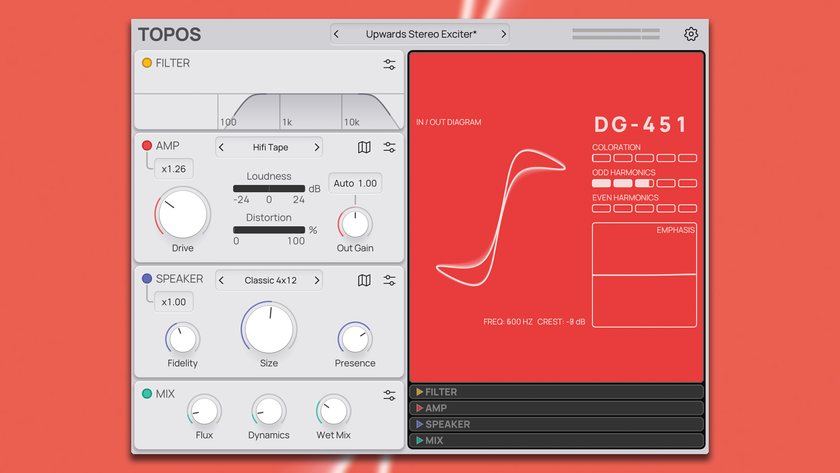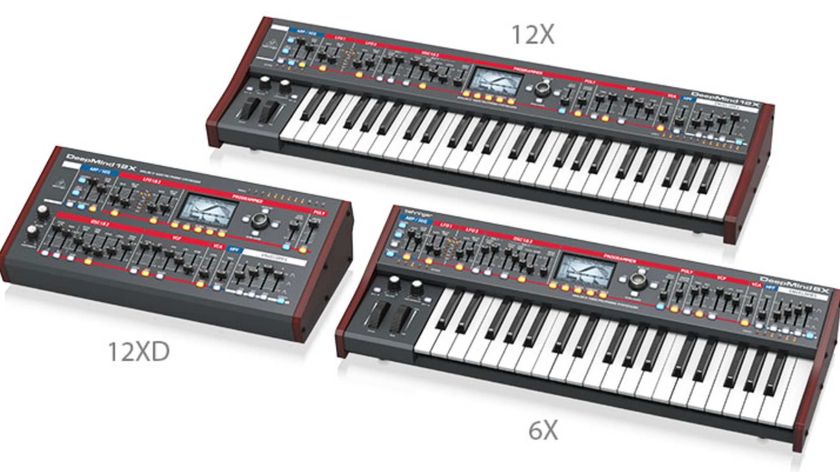Three tracks a day, no crazy kit or plugins: Why the Ballad of Darren is "the first real Blur album in 20 years"
Blur's latest long player had them "feeling like a band of brothers again"

Before we knew it, we were listening back to a rough version of the album
James Ford, Producer
Blur's Damon Albarn and producer James Ford have recently given a revealing insight into the recording of the band's latest The Ballad Of Darren album. Few plugins were used in its recording, and as for the gear, that turned out to be "a bit irrelevant", although Garageband gets a thumbs up from Damon. However, what the recording process did result in is "the first real Blur album in 20 years".
James Ford and Damon Albarn were speaking on the Tape Notes podcast, discussing the super-quick recording of The Ballad Of Darren, which took place at the start of this year. It saw the band working on up to four tracks a day from a selection of 30 demos they started the session with.
"At the beginning, it was quite intense," says Ford, "because we were going through, like, three or four basic tracks a day just playing and jamming over them, intending to get a feel for it. Before we knew it, it was only a few weeks in and we were listening back to a rough version of the album. It was just like, let's just keep moving as quick as we can."
One of the aspects that helped was not getting too bogged down with the gear and plugins they used for the project, with Ford admitting, "it was done pretty quickly so we didn't use a lot of plugins" and "Damon has no interest in the technical side of it, which is great. Sometimes it goes the other way where I've seen people get too worried about 'the chain' and thinking about the compression, just like putting off the inevitable. The technology is a procrastination hole if you're not careful."
"The more I go through it," Ford continues, "the less kit obsessed I become. There's nothing that outlandish or kind of crazy [used, gear-wise]. It's more about the choices of mic placement and the actual drums you're gonna hear, and the instruments, obviously; they've got nice amps and nice guitars. But then beyond that, it's a bit irrelevant."

It kind of put us back to that beautiful moment in like '92/'93 when we were working on Modern Life is Rubbish
Damon Albarn
There was also the fact that the band had some gigs at Wembley booked and had to record the album in quick fast time.
"There was the big flag in the ground of the Wembley show," James says with Damon adding: "That was thrilling, like 'wow, what you mean we can do this record and the turnaround be so quick that we can actually put it out at the same same time as we play those gigs?"
Get the MusicRadar Newsletter
Want all the hottest music and gear news, reviews, deals, features and more, direct to your inbox? Sign up here.
The slick and streamlined studio experience has left Damon feeling like The Ballad Of Darren is a return to Blur's golden period.
"This is really the first real Blur record for over 20 years," he notes in the podcast. "Like going back to being truly a band, not disparate, all focused, all in the same place wanting to do the same thing, feeling like a band of brothers once again. It kind of put us back to that beautiful moment in like '92/'93 when we were working on Modern Life is Rubbish. Suddenly it was like we are realising our potential a bit."
Finally, Albarn did have one rare gear admission: the use of GarageBand on the odd demo for the album, including closing track The Heights.
"I'm playing distorted electric guitar on this, but I'm playing it using the GarageBand distorted guitar but it sounds quite good. GarageBand. I swear by it. It's how you use it, you know? it's got it all there. It's amazing. It's got everything."
Here's a taste of the final (non-demo) version of The Heights.


Andy has been writing about music production and technology for 30 years having started out on Music Technology magazine back in 1992. He has edited the magazines Future Music, Keyboard Review, MusicTech and Computer Music, which he helped launch back in 1998. He owns way too many synthesizers.

"Reggae is more freeform than the blues. But more important, reggae is for everyone": Bob Marley and the Wailers' Catch a Fire, track-by-track

“Part of a beautiful American tradition”: A music theory expert explains the country roots of Beyoncé’s Texas Hold ‘Em, and why it also owes a debt to the blues










